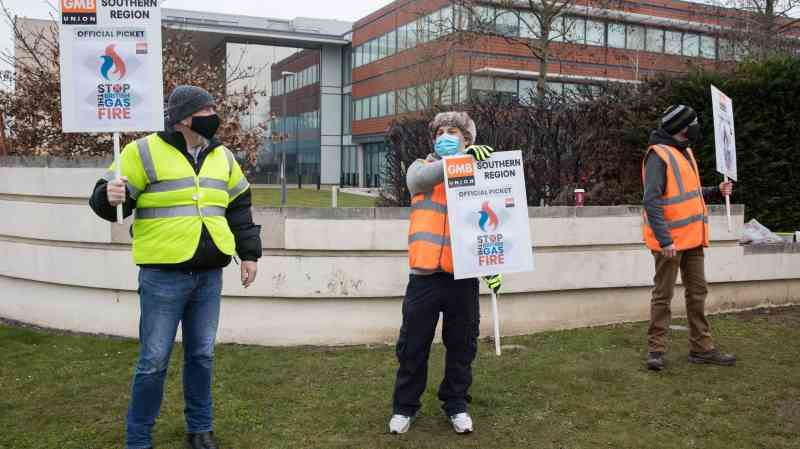Centrica is preparing to dismiss hundreds of British Gas engineers if they refuse to accept tougher contracts this week.
Thousands of workers in the GMB union have been holding strikes since January and today are entering their 42nd day of walkouts over terms that they say amount to a pay cut.
Chris O’Shea, Centrica’s chief executive, said that it would write “to those people who haven’t signed up to lay out, if they don’t sign up, the process by which they will leave the company”.
He said that the “vast majority” of staff had accepted the new contracts, which include longer hours, and said that those refusing would “leave the company of their own accord”. He said that the old contracts paid “top-decile” wages for “bottom-quartile productivity”.
The GMB said that many workers had accepted the new terms only to avoid the “mass sackings” and that it was balloting for more strike action. Andy Prendergast, its acting national secretary said: “This dispute will carry on going. We’re in it for the long haul.”
Centrica has about 20,000 staff in Britain, including an estimated 7,000 engineers. The union says that up to 5,000 have taken part in strike action.
O’Shea, 47, who became chief executive a year ago, has taken on the union in an attempt to “arrest the decline” at Centrica, which has lost millions of customers and three quarters of its market value over the past decade. British Gas now supplies energy to about seven million homes and has contracts for boiler repair and other services with 3.6 million households.
Many engineers are being asked to move to 40 hours from 37 hours a week. O’Shea said that Centrica had now agreed to pay for the increased hours, but that from 2023 this would be contingent on better productivity.
Engineers would be expected to carry out eight jobs per day, from an average of six and a half at present. “You cannot pay the best wages in the market, which we do, and have the lowest productivity,” O’Shea said.
Engineers also will be paid from when they arrive at the first customer’s property, not when they leave home. “I don’t know of anyone else that gets paid to commute,” he said.
Centrica inflamed tensions with unions by issuing a section 188 notice early in the dispute, warning that it would fire and rehire workers if they did not accept the terms.
O’Shea insisted that Centrica was legally required to do so and had done “everything that we could possibly do to avoid those terminations”, but could not “continue in interminable discussions”.
